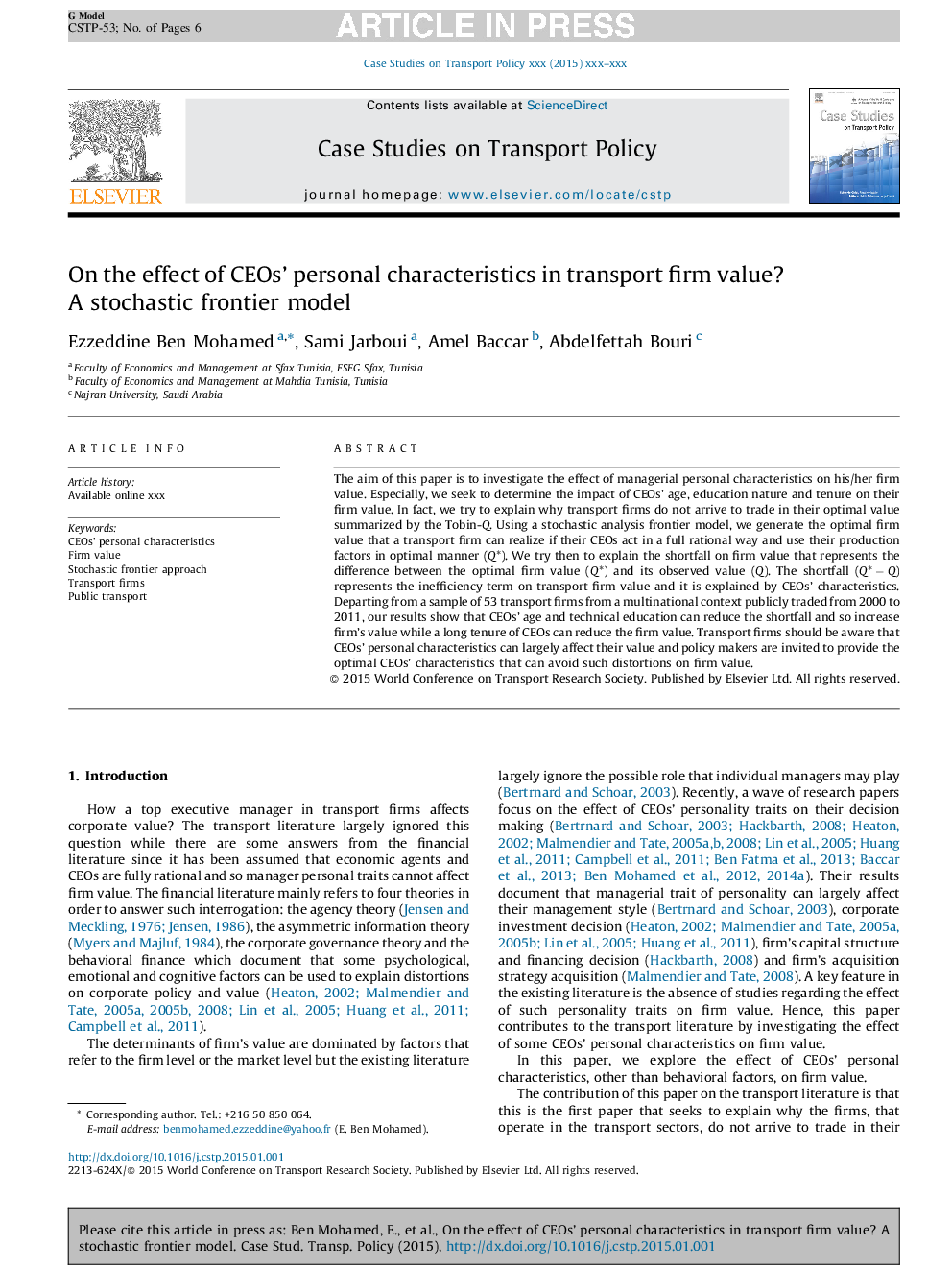| Article ID | Journal | Published Year | Pages | File Type |
|---|---|---|---|---|
| 10283664 | Case Studies on Transport Policy | 2015 | 6 Pages |
Abstract
The aim of this paper is to investigate the effect of managerial personal characteristics on his/her firm value. Especially, we seek to determine the impact of CEOs' age, education nature and tenure on their firm value. In fact, we try to explain why transport firms do not arrive to trade in their optimal value summarized by the Tobin-Q. Using a stochastic analysis frontier model, we generate the optimal firm value that a transport firm can realize if their CEOs act in a full rational way and use their production factors in optimal manner (Q*). We try then to explain the shortfall on firm value that represents the difference between the optimal firm value (Q*) and its observed value (Q). The shortfall (Q* â Q) represents the inefficiency term on transport firm value and it is explained by CEOs' characteristics. Departing from a sample of 53 transport firms from a multinational context publicly traded from 2000 to 2011, our results show that CEOs' age and technical education can reduce the shortfall and so increase firm's value while a long tenure of CEOs can reduce the firm value. Transport firms should be aware that CEOs' personal characteristics can largely affect their value and policy makers are invited to provide the optimal CEOs' characteristics that can avoid such distortions on firm value.
Related Topics
Physical Sciences and Engineering
Engineering
Civil and Structural Engineering
Authors
Ezzeddine Ben Mohamed, Sami Jarboui, Amel Baccar, Abdelfettah Bouri,
